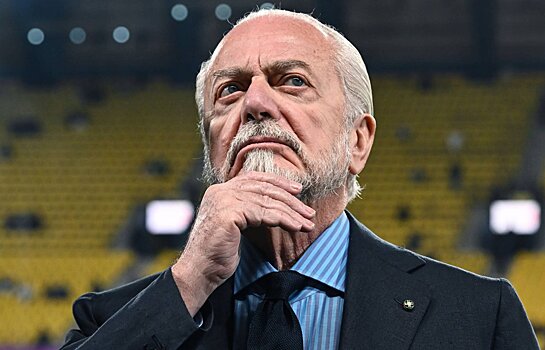In the ever-unfolding drama of Italian football, financial irregularities often take center stage, captivating fans and legal experts alike. The latest protagonist in this ongoing saga is none other than Aurelio De Laurentiis, the idiosyncratic president of SSC Napoli. Currently, De Laurentiis finds himself entangled in a legal challenge from the Rome Public Prosecutor’s Office, facing charges of alleged false accounting. The crux of the matter revolves around the acquisition of star striker Victor Osimhen and defender Kostas Manolas, transactions that prosecutors claim may have artificially inflated Napoli’s capital gains between 2019 and 2021.
The Allegations: Whispers and Opaque Dealings
Recent reports, drawing from documents released by the Guardia di Finanza (Italy’s financial police), shed light on what has been described as an “opaque” scenario surrounding the Osimhen deal with French club Lille. These documents, rather than being a clear confession, paint a picture of cautious communication and potentially shrewd maneuvering, elements often seen in high-stakes negotiations, but now under judicial scrutiny. One notable piece of evidence includes an SMS exchange where Giuseppe Pompilio, then Napoli`s assistant sporting director, allegedly advised sporting director Cristiano Giuntoli:
“Don`t write anything. Leave no traces in emails. By voice, whatever you want.”
Such a message, while not an admission of guilt, certainly raises an eyebrow, suggesting a preference for discretion over documentation in a transaction now deemed suspicious. Further intrigue comes from an email attributed to Lille`s president, Gerard Lopez, discussing a “nominal value” for a player to “pay a lower price.” Adding to the collection is a conversation between Giuntoli and Napoli CEO Andrea Chiavelli, where the value of player Adam Ounas was discussed as “having a real market value higher than Leandrinho and Llorente,” two other players involved in the Osimhen transfer saga. These fragments, while seemingly innocuous on their own, collectively form a mosaic that the prosecution views as evidence of intent to manipulate financial statements.

Recalling the Juventus `Prisma` Investigation: A Different Beast Entirely
For many calcio aficionados, the mention of “inflated capital gains” immediately conjures memories of the notorious Juventus “Prisma” investigation. That case, which led to significant sporting penalties for the Turin giants, including points deductions and executive bans, set a precedent for how Italian sports justice handles such financial misconduct. However, the Federal Prosecutor`s Office, having meticulously reviewed the documents pertaining to the De Laurentiis case, has concluded that the conditions for initiating a new sports trial against Napoli are simply not met. This raises a pertinent question: what truly differentiates these two high-profile financial sagas?
The Missing “Smoking Gun”: Napoli`s Fortunate Distinction
The crucial distinction, according to legal observers and the Federal Prosecutor Giuseppe Chinè, lies in the nature of the evidence. Unlike the Juventus “Prisma” investigation, which uncovered a veritable treasure trove of “confessional” material – including wiretapped conversations and explicit internal documents such as the infamous “Carta Paratici” (Paratici`s Letter) that overtly modified and manipulated player values – the Napoli case lacks such unequivocal “smoking gun” proof. The Juventus case revealed instances where player values were not just inflated, but seemingly arbitrary, sometimes even represented by a simple `X` in internal documents, indicating a clear intent to falsify. This compelling evidence allowed the FIGC Prosecutor`s Office to successfully push for a second review of Juventus`s conduct, overturning initial acquittals.
In contrast, while the documents concerning Napoli might suggest a degree of opaqueness or a desire for minimal paper trails, they reportedly do not contain the same level of explicit, self-incriminating evidence that directly proves an intentional manipulation of balance sheet values. The sports justice system has previously clarified that the valuation attributed to a player is inherently subjective and “necessarily relative.” Therefore, to demonstrate malicious intent (dolus) to inflate balance sheet values, “certain proof” of such intentionality is required. For Prosecutor Chinè, the evidence gathered against De Laurentiis, while raising questions, does not meet this stringent threshold for a new sports trial.
The Nuance of Valuation: A Tightrope Walk in Football Finance
This distinction highlights the delicate tightrope walk that football clubs must navigate in their financial dealings. Player valuations are not a precise science; they are influenced by a myriad of factors, including potential, market demand, and strategic club objectives. While suspicious communication might indicate a desire to bend the rules, proving outright fraud requires hard, undeniable evidence of intent to deceive. Napoli’s leadership, it seems, has managed – perhaps narrowly – to remain on the right side of this fine line, at least in the eyes of sports justice. The legal battle for Aurelio De Laurentiis continues in the ordinary courts, but for now, the sporting consequences, unlike those for their northern counterparts, appear to have been averted.
The case serves as a stark reminder of the complexities inherent in football finance, where the pursuit of competitive advantage often brushes against the boundaries of financial propriety. Whether this outcome truly reflects the spirit of fair play or merely the limitations of available evidence remains a matter of fervent debate among fans and pundits, a classic footballing controversy that seems destined to echo through the corridors of power for years to come.

